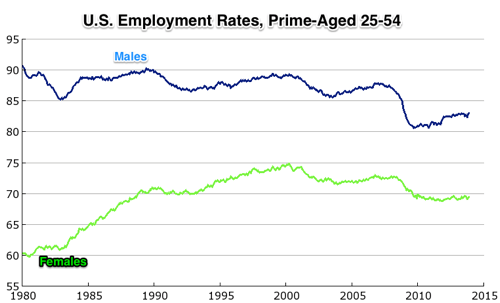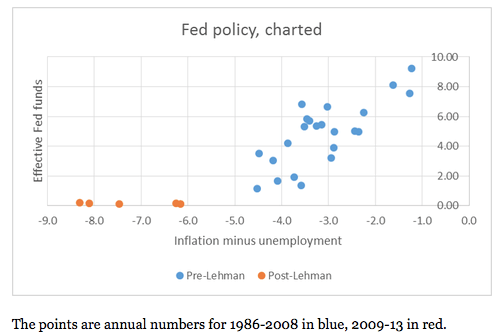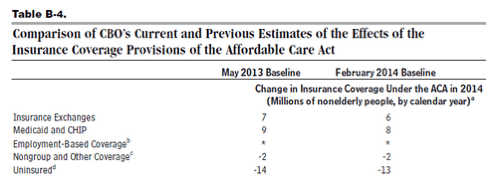
Mark Peters and David Wessel: More Men in Prime Working Ages Don’t Have Jobs: Mark Riley was 53 years old when he lost a job as a grant writer for an Arkansas community college.
“I was stunned,” he said. “It happened on my daughter’s 11th birthday.” His boss blamed state budget cuts. That was almost three years ago and he still hasn’t found steady work. Mr. Riley, whose unemployment benefits ran out 14 months ago, says his long and fruitless search is proof employers won’t hire men out of work too long. “We’re poor, but we’re not broke,” Mr. Riley said. “We still have property. We have cars. We have some assets, we just can’t liquidate them.”… More than one in six men ages 25 to 54, prime working years, don’t have jobs—a total of 10.4 million. Some are looking for jobs; many aren’t…. Having so many men out of work is partly a symptom of a U.S. economy slow to recover from the worst recession in 75 years. It is also a chronic condition that shows how technology and globalization are transforming jobs faster than many workers can adapt, economists say.
Continue reading “Mark Peters and David Wessel: More Men in Prime Working Ages Don’t Have Jobs”

 Paul Krugman:
Paul Krugman:  Paul Krugman:
Paul Krugman: